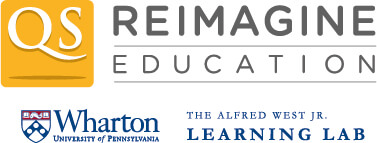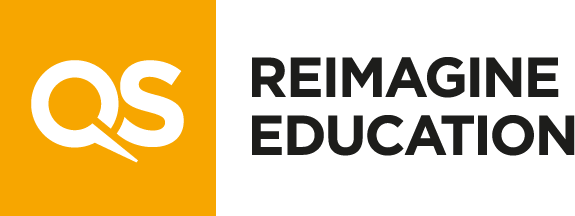EDITORIAL OVERVIEW
REIMAGINE NEWSLETTER: ISSUE 30
As part of an ongoing series introducing our thought-leading speakers from across the world of education, we spoke to Jenny Bergeron, Director of Educational Research and Evaluation at Harvard University. At Harvard, Jenny oversees evaluation and research of Harvard’s leading educational initiatives.
The Derek Bok Center for Teaching and Learning wishes to create transformational learning experiences for faculty, graduate students and undergraduates in Harvard’s Faculty of Arts and Sciences. How does your role contribute to that mission?
Data is a critical tool in fostering innovation and change, but not all new changes in education lead to improvement. Innovation can be implemented in a manner of “just doing it” and relying on intuition. In my role at Harvard University, I help support educational improvement and innovation by developing tailored-made approaches designed to achieve deeper insight into what works best and how. The most important part of this work includes sharing what I learn in an actionable way so that course corrections can be made as soon as possible, and improvements can be spread, adopted and created to scale.
What are you doing to drive evidence-based practice? How are you reimagining education?
This year I completed a three-year study of Harvard’s first online degree program-MPH in Epidemiology. While Harvard has offered online education through its extension school for decades, these programs were non-Harvard degree granting. For a long time, perceptions of online education have been unnerving to Ivy League institutions as an anathema to their prestige. The MOOC movement, combined with planning funds from the Harvard Initiative for Teaching and Learning, created the perfect storm for the evolution and adoption of online learning technologies on our campus.
The idea behind the program was to create an online, in-person, and field experience for public health leadership working in the field around the world. The vision for the program came from Julio Frank, Dean of the Harvard T.H. Chan School of Public Health at the time and now president of University of Miami. His idea for higher education was one of “open architecture” where students are life-long learners and move in and out of educational institutions at different points in their lives to learn. Starting with traditional education in College/Graduate School, lifelong learners practice in the field, then return once again to the university to expand their skills and share their experiences with other professionals. Frank saw online learning as complementary to on-site and developed a vision for a program that created a harmonious balance between online, inside and field work for students who wanted to pursue a master’s degree in epidemiology.
As public health professionals, the faculty knew that they needed rigorous monitoring and evaluation for implementation to be successful and for the program to scale. The data collection was very comprehensive. Each individual course was thoroughly evaluated so that change could be made along the way for the next cohort. These evaluations included recommendations grounded in the educational research literature. We monitored admissions data to ensure that student entrance characteristics were indistinguishable from other MPH degrees at Harvard. We evaluated performance comparing the onsite programs to the blended degree program, conducted focus groups online and tracked students 6 months out. The program was vigilant with making course corrections along the way.
I will also note how the leadership played an important role in all of this. The faculty were really motivated and empowered to make this work. They were very eager to anticipate and exploit the insights provided by early information even if it was not always positive at first. There is always a learning curve with technology. It was an experiment in a lot of ways. The lessons that we learned along the way are now helping the university reimagine what is possible in terms of educational delivery.
Reimagine’s focus is on exploring innovation in all areas of education, and Harvard is a place where cutting edge thoughts occur. Which practices or approaches would you say were particularly innovative or novel?
There are interesting projects occurring all around Harvard right now. Most involve leveraging technology to transform the learner’s experience. This has occurred at many different levels. Recently we worked with a professor using a just-in-time learning approach to provide students with the additional scaffolding required for success in an Organic Chemistry Class. Traditionally, when you wanted to brush up on something that you learned a while back, you might have had to take a refresher course or a pre-requisite course. This creates extra time and cost. Material such as Math is learned separate from main course requirements. Now, assisted by technology, students can learn just-in-time, at the point in the curriculum that makes the most sense. For this project, developmental practice problems were embedded into online homework learning models. These problems came with solutions that were scaffolded so that students could work up to the next step.
There has also been a lot of experimentation with digital assignments. We’ve worked with a faculty member who is working on a virtual reality project in a French course that exposes students to Parisian life through a variety of VR film narratives. In another course about the Archaeological History of Egypt, a faculty member has students complete a virtual reality project using cinema 4-D where they act as curators designing virtual 3-D spaces using and filling them with artifacts. There are many others.
In addition, technologies have been developed to track classroom interactions. For instance, faculty can keep track of who they call on in class, who is participating, before linking this information to each student’s background. This enables them to identify teaching patterns and help students who may be falling through the cracks.
All of these innovations were driven by faculty who were confronted with a challenge in their classroom and were trying to find a solution.
What have you learned from your work? What’s surprised you, or changed the way you think about education?
(a) The ability to experiment rapidly is integral to innovation but universities are often entrenched in their routines. Learners are also entrenched in their routines. I am still struck by a comment that a student made in a focus group a couple of years ago surrounding their experience with blended learning. Comparing this new learning experience to going from driving an automatic car before being asked to drive a manual car, the student wondered why anyone would want to learn to drive manually when they were accustomed to the ease of an automatic. The automatic has a built-in brain, requiring less thought and input on the user’s side.
The student explained that he had to learn to learn in a new way, had to participate more in class, and come in more prepared. Consequently, he felt frustrated because he felt the old familiar way – being a passive consumer was working fine. Students often get caught up in routine ways of learning. Faculty do as well. I have seen this many times when faculty go from teaching a brick-and-mortar class to teaching online, before realising that the same approaches do not necessarily translate. There is a learning curve.
(b) Failure with respect to classroom innovation is often confused with error. In the lab, failure is part of innovation. However, in the classroom, there is definitely something very personal and psychological at stake, especially when one has to face the same audience every day, putting themselves out there. The punitive nature of teaching evaluations also contributes to the sentiment of failure, especially when course evaluations are not seen as developmental. Clinging to what feels safe and often familiar becomes a barrier to testing out new approaches and finding out whether they are working.
(c) Many projects fail late in the game in higher education instead of exploiting information early on. Oftentimes in higher education the plane is being built in the air. Many things are being done on the basis of intuition and there is no understanding of the theory behind the change or strategy. There is not an iterative cycle of plan-do-study-act and so much of what we end up doing is reactive instead of proactive. Programs mostly fail due to operational issues and failing to identify the assumptions under which a successful change can occur. I have seen many curricular changes happen this way. I think many of our disappointments with MOOCs are attributable to this.
(d) Traditional methods of delivery and new technology should complement one another. Technology is not always the answer. When designing courses, it is easy to assume that because these approaches are interesting and engaging, that students are actually learning. Selection of instructional approaches requires knowledge of their application, their relative strengths and weaknesses, and most importantly their alignment with the course’s instructional objectives. There should be justification as to why and how materials are being used. Also, students have to see its relevance. In other studies, focused on blended we learned how many students regarded the digital course components as attempts to supplant, rather than to integrate with in-class experiences. Part of this was tied to the faculty’s learning curve on how to integrate the out-of-class piece with the in-class piece and part of it was with messaging and making explicit the interconnections between the two learning environments. Students become frustrated with technology when faculty teach to and not through technology instead of thinking of pedagogy first.
What’s the most pressing issue in Higher Education?
The most pressing issue right now is the rising cost of higher education. Higher education has reached such a high price that it is unaffordable for most middle-class Americans. Financial aid is not keeping up with rising costs. State spending on instruction at public colleges is at its lowest point. At the same time, faculty demand growth in salaries, students are asking for more for academic and social support services and colleges are funneling back financial aid to support low-income students. Policymakers and university leaders are trying to devise creative solutions to deal with this. Technology as we all know has been proposed as one possible solution but the question that always arises is the quality. While it might reduce the cost will students receive a comparable education? This will be highly variable and will depend largely on who is doing the implementing, under what conditions, and for whom. We just do not know enough about how this works and under what conditions and it’s definitely a challenge.
Secondly, today’s learners are much different. Students are now coming to college with a variety of different backgrounds, experiences and preparation so, how can we ensure that everyone who attends is able to compete on the same playing field. How can we ensure that students are able to make authentic choices with respect to what they want to concentrate in and what academic opportunities they want to take advantage of regardless of their previous backgrounds?
The third and related issue that goes on beyond the traditional group of 20 something college student is the life-long learner. While technology makes the world a better place it also makes it more complex as skills become obsolete. Many businesses are finding it difficult to recruit and retain a workforce with the skills necessary to sustain growth in this new world of technology. Education will be necessary to keeping the workforce competitive. What role will higher education play in this arena?

Jenny Bergeron
DIRECTOR FOR EDUCATIONAL RESEARCH AND EVALUATION, HARVARD
Jenny Bergeron oversees evaluation and research of Harvard University’s leading educational initiatives. As a strong proponent of evidence-based policy and reform in higher education, Bergeron has a longstanding commitment of helping to envision and realize projects that can transform the practice of education at top American universities as well as research in higher education.
Over the past five years at Harvard, she has implemented a number of studies that have largely focused on how to best engage Harvard undergraduates from the academic, personal and social perspectives. Her efforts have helped the University in transforming its undergraduate general education curriculum, the redesign of new educational spaces, and the development of innovative pedagogical approaches that meet the diversity in learning needs of Harvard undergraduates. Her work has also extended across campus to the T.H Chan School of Public Health, where she is working with academic leadership to study the implementation of Harvard’s first online degree program designed to serve M.D.s and other health care professionals both within the United States and abroad.
Readers can meet Jenny at 2019’s Reimagine Education Conference, where she will be speaking on mindful innovation alongside the Director of Brown University’s Sheridan Center for Teaching & Learning, Mary Wright; and the Head of LSE’s Eden Center for Education Enhancement, Claire Gordon.

Jenny Bergeron will also be speaking at the 2019 Reimagine Education Conference (London, 8th-10th December). She’ll be speaking on our “Mindful Innovation: How To Cultivate A Progressive Pedagogical Paradigm At Your Higher Education Institution” session, with Claire Gordon of the London School of Economics, and Mary Wright of Brown University’s Sheridan Center for Teaching and Learning.
Learn more about Jenny’s session, and secure your place today, at www.Reimagine-Education.com.

